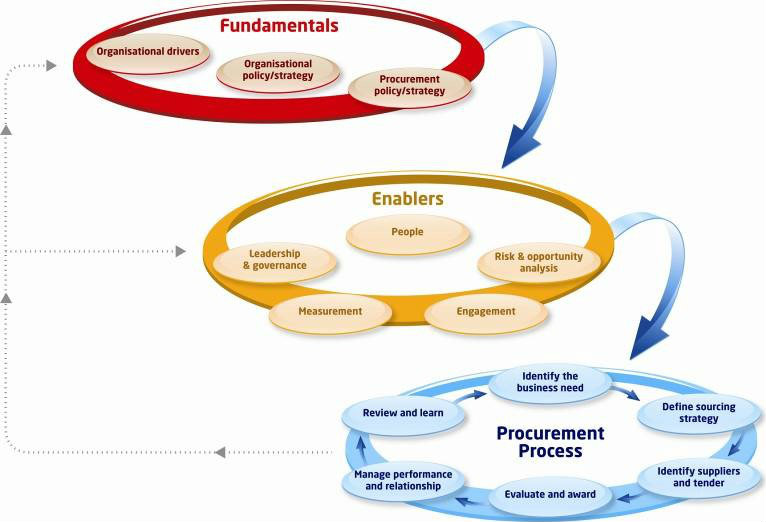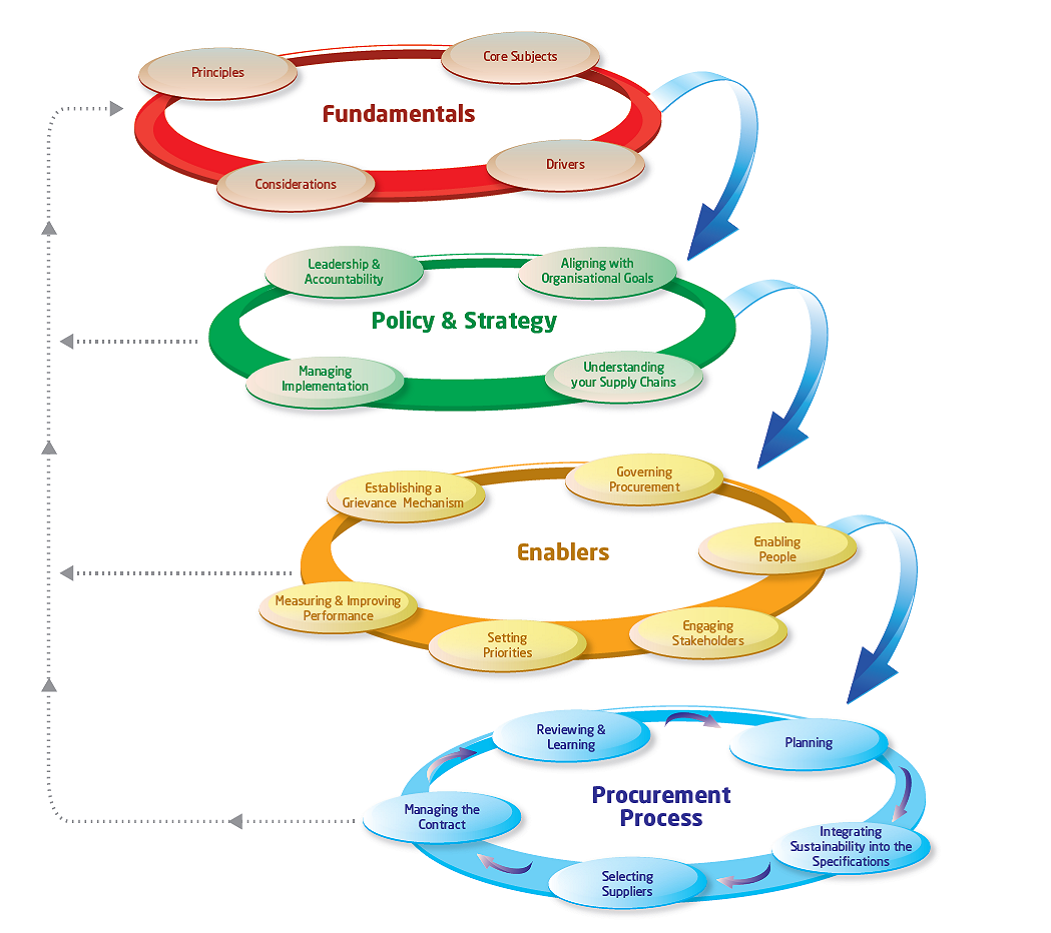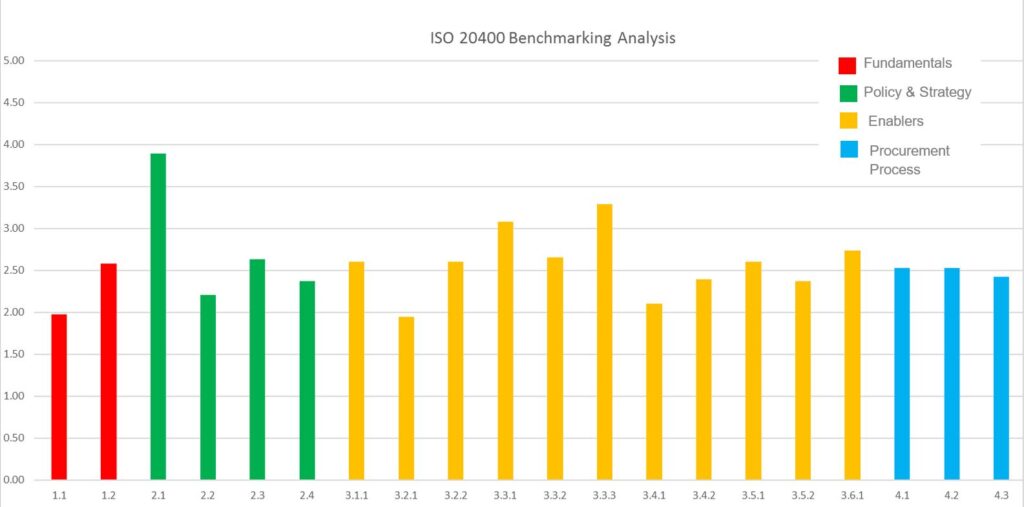The new Standard for Sustainable Procurement, ISO 20400, was published in April 2017. It represents the combined efforts of an international consortium to create a consistent approach to Sustainable Procurement. As the UK’s representatives in this consortium Action Sustainability played a key role in the development of ISO 20400 and there’s no coincidence that the structure of the new standard is similar to the now superseded British Standard for Sustainable Procurement, BS8903. In fact, BS8903 and ISO 20400 largely share the same structure. In the diagram below, you can see the evolution from BS8903 to ISO 20400:
BS8903:(2010)
 ~
~
ISO 20400:(2017)
 © Action Sustainability 2010 and 2017.
© Action Sustainability 2010 and 2017.
The saying goes that there are many ways you can skin a cat. The same is true when it comes to evaluating an organisation’s competency in sustainable procurement. Action Sustainability have been assessing organisations since the heady days of the Flexible Framework, more than ten years hence. For the new Standard we developed both ‘conventional’ full assessment and an ‘assessment lite’ gap analysis version. This enabled us to engage with people in a quicker and more responsive way.
Our bespoke gap analysis questionnaire asks 20 questions across all the aspects of the Standard. We used it as the basis of 20 face-to-face workshops with clients from across the construction and infrastructure sector to help them understand where they are on the journey to being aligned with ISO 20400. In a typical workshop, one of Action Sustainability’s experts took the client’s team, with people from procurement and sustainability, through the questions, challenging responses and assumptions as to how well they are performing. Each question was scored from 1 to 5 with notes taken on where improvement actions could be taken.
Having undertaken these workshops with organisations from across the construction and infrastructure sector, the initial analysis of the aggregated data indicates that organisations score most highly against the question which asks if senior management are committed to sustainable procurement (question 2.1 in the graph below). Areas which were scored lowest include understanding the drivers for sustainable procurement (question 1.1 in the graph below), translating sustainable procurement objectives into staff development objectives (question 3.2.1 in the graph below) and correlating areas of spend with sustainability impact areas (question 3.41 in the graph below).
Indeed, we often heard from workshop participants that sustainability simply isn’t in peoples’ job descriptions, annual appraisal objectives and targets, nor was it included in recruitment. This is a key aspect for staff to know why, what and how they should deliver sustainable procurement. Without it there will be good but uncoordinated intentions.
Furthermore, our research found that, surprisingly, sustainable procurement is still only seen as the responsibility of either the sustainability or procurement department/team: there is a lack of engagement with other functions who have an essential part to play in successful delivery.
Overall however, what stands out is that the scores generally lie between 2 and 3 out of 5 – the average across the board is 2.6. This says that whilst many organisations have some good elements to their sustainable procurement and supply chain management policies and procedures, there is still much they can do to move themselves further down the road to sustainability.
So, although the standard is relatively new, this evidence shows that we still have a long way to go to make sustainable procurement business as usual.

James Cadman, Lead Consultant
James@actionsustainability.com
or telephone: 07884 654 827

This was posted in All Topics, Energy & Carbon, ISO 20400 Sustainable Procurement
Our Head of Climate, Dr James Cadman, shares his insights on how organisations can effectively embed carbon reduction into their sustainable procurement practices using the ISO 20400 framework.
Read Article
This was posted in All Topics, Sustainability Strategy
Senior Consultant, Imogen Player shares her top tips for what makes an effective double materiality assessment.
Read Article
This was posted in All Topics, Biodiversity, Wellbeing
Consultant Hattie Webb dives into some practical tips to enable anyone to embrace sustainable traveling. From choosing eco-friendly destinations to minimising waste and respecting natural habitats, these tips aim to reduce the environmental impact of commuting while providing a more meaningful travel experience.
Read Article